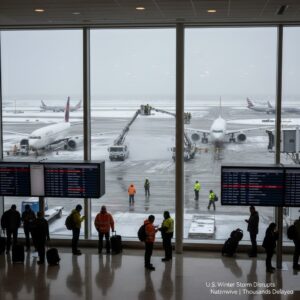Saudi Arabia jumps into the ring, ramping up the regional competition with Gulf airlines Emirates and Qatar Airways. Crown Prince Mohammed Bin Salman has been pushing for economic diversification of Saudi Arabia in order to end its dependency on oil alone, and to create more jobs in other industries and sectors.
Currently oil and gas contribute to about half of Saudi Arabia’s gross domestic product (GDP). Right now there is an urgently felt need to reduce dependency on this sector as the world is making advances into alternative sources of energy.
Saudia is looking to massively develop its transport and logistics industries and is aggressively pushing to become the fifth biggest air transmit hub. The launch of the new national airline is a big step in that direction. Saudi is seemingly planning to beome a Middle East logistical hub.
There is a clear shift in strategy as up to now Saudi Arabia concentrated mostlyon domestic flights. The state-owned Saudia Airlines and its low cost subsidiary flyadeal, mostly operate domestic services and point-to-point flights. With the introduction of this new airline, MBS has decided to increase flight routes from 80 to 250 destinations and to double air cargo capacity to more than 4.5 million tonnes per year.
The regional competition in aviation sector is heating up in the gulf region. Earlier there were 2 major players – Qatar Airways and Emirates. Now the new Saudi based airlines is set to take on these two giants.
Dubai is already the world’s largest international air travel hub. It has further announced a 5 year plan to grow air and shipping routes by another 50%.
Saudia’s move could however be a risky one. Any airline requires substantial start-up capital and experts warn that if Saudi Arabia’s ambition is to compete on transit flights it may have to contend with years of losses. However Saudi Arabia has some big advantages. First of all it is centrally located between the East and the West. Saudi also has big pockets and large resources to compete with the other big airlines.
















More Stories
Cyprus’ Short-Term Rental Boom: Nearly 2M Guest Nights Fuel EU Tourism Surge!
US Winter Storm Fury: 2,838 Delays/114 Cancellations—Delta Tops w/ 295 Delays!
Morocco’s Tourism Miracle Record 19.8M Visitors 2025, $13.5B Revenue Surge!